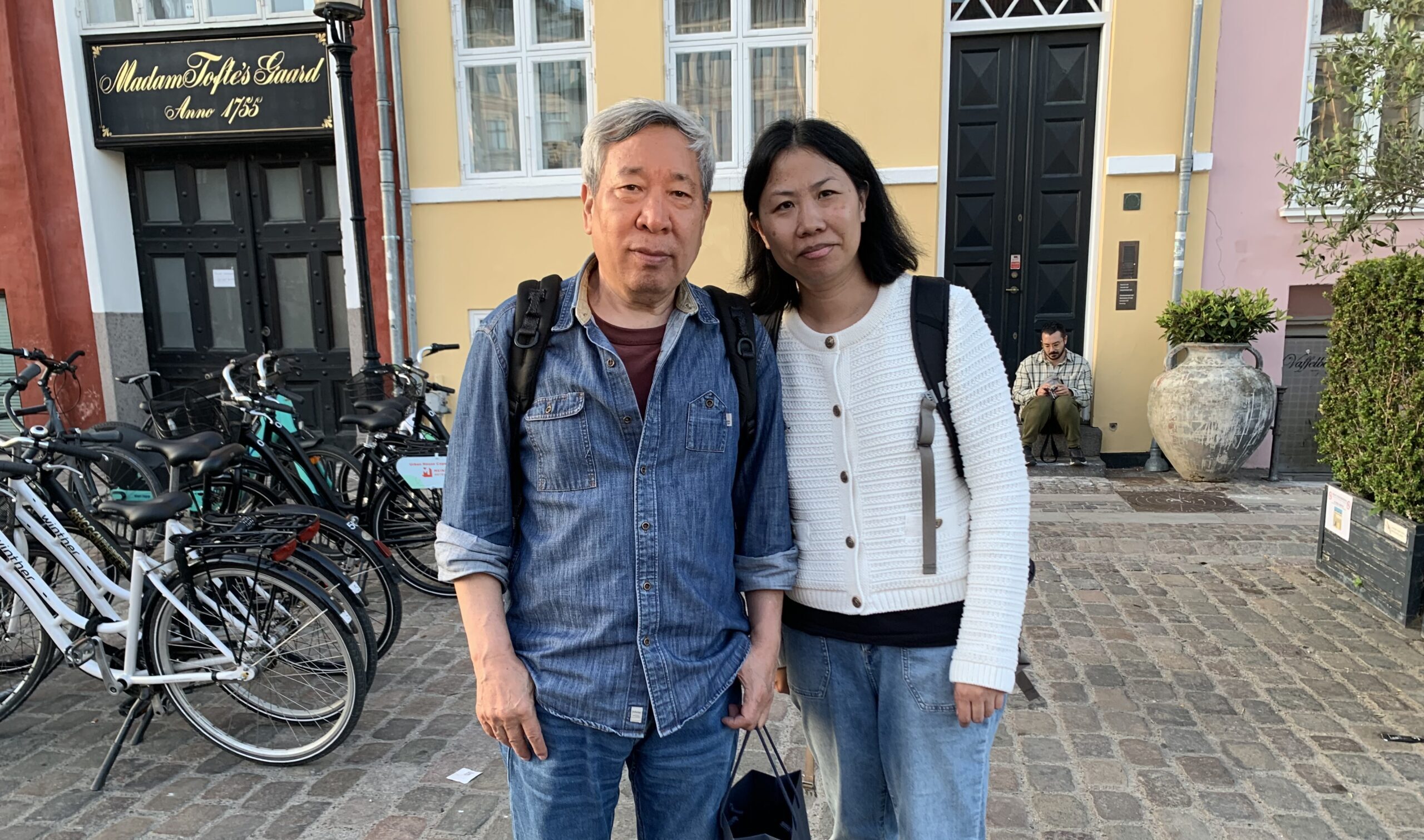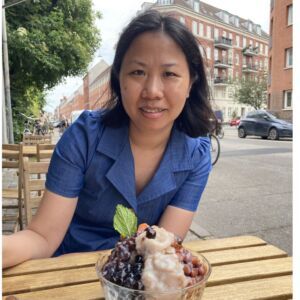The prominent Chinese writer Yan Lianke is currently on his Europe tour. He was invited to Copenhagen for the Politiken Live event this past weekend.
One day, in my solitude of novel writing I received an email from Politiken Live. It seemed that none of the usual interpreters were available for the Lianke event, and as I’m a culture columnist for Politiken, they thought of me.
I asked my father (a publisher/writer/literary critic) whether I should take it on, because it’s a hard job to be an interpreter at an event. He said if it’s for Lianke I should most definitely do it, as I would have a chance to meet not just an excellent writer but an excellent human.
Over the years, I have read many Danish translations of Chinese literature, and good translations are pretty rare. Some publishers didn’t even bother to translate from Chinese, but simply translated from English.
This is a perverse and irresponsible approach, and I’m saddened to see so many works of my favorites Chinese writers butchered this way. But even when the works are translated from Chinese by a technically skilled translator, the spirit of the original rarely manifests in the translated version.
Can the recent Danish translation Dage, Måneder, År (The Years, Months, Days) transform Lianke’s elegantly minimalistic yet expressive language into the same feeling?
As I approached the ending of the Danish translation, I was suddenly experiencing a rush of pure content.
It was as if someone was giving me a neck massage and successfully delt with a troubling knot. The tingling sensation of wellbeing spread to the rest of my body, from top to toe. It is not often I experience a physical reaction when reading a novel, and I remember the similarly pleasant reaction when I read this novel in Chinese.
I must thank the eminent translator Susanne Posborg for this superb experience, as a great writer is nothing without a great translator.
Lianke has won countless prestigious awards both in China and abroad. He’s a bestseller author worldwide. But I didn’t realize he’s also a super star in Denmark, as Denmark is always a little slow to recognize great people.
The audience absolutely adored Lianke and his amusing anecdotes. The interviewer Bjørn Bredal was wonderfully knowledgeable and broad-minded. The audience were a lot younger than the usual audience to literary events in Copenhagen.
Many Chinese students came with their Danish friends. Everyone felt very lucky to have secured tickets to this sold-out event.
I was invited to tea with Lianke before the event, he generously gave me some advice about writing. He said that teaching students how to write has been good for his own writing, as teaching helps him reflect and perhaps change one’s own approach and provide insight and inspiration.
He’s pleased to hear that I now also write fiction in English, on top of Chinese and Danish. He said that finding the right literary agent is essential. He told me that he has an UK agent with tremendous integrity, skill and persistence, without her he would not have been translated to over 30 languages.
Later he asked me for the only favor he has asked of me, which is no favor at all. He asked me to pick a place for dinner for the three of us, because his Danish editor would like to take us out for dinner and drinks.
As he talked longingly about seafood and wine at the event, I suggested the best place I know for lobster and champagne in Copenhagen: Khun Juk.
This choice brought more joy than anticipated. Not only did the editor and Lianke love the place, we also met two Chinese students there that were great admirers of Lianke.
During dinner Lianke said that living well is a lot more important than writing well. If you don’t live well, he said, you won’t write well either. I know your father agrees with me, he said to me, because your father loves good food and wine.
My father was right. Lianke is an excellent writer and excellent human. I was privileged to experience his generosity and kindness.
Lianke feels deeply for the people and hopes to improve conditions by exposing the very worst of China with sincerity and diligence.
Unfortunately, the big publishers and mainstream media in the West are deliberately selective and completely ignore the many other sides of China.
But this is not Lianke’s fault. I know a lot of people view Lianke as a hater of China. Nothing could be further from the truth. A citizen and resident of a country that persistently criticizes that same country, is a lover, not a hater.
Lianke loves his country with all his might.



